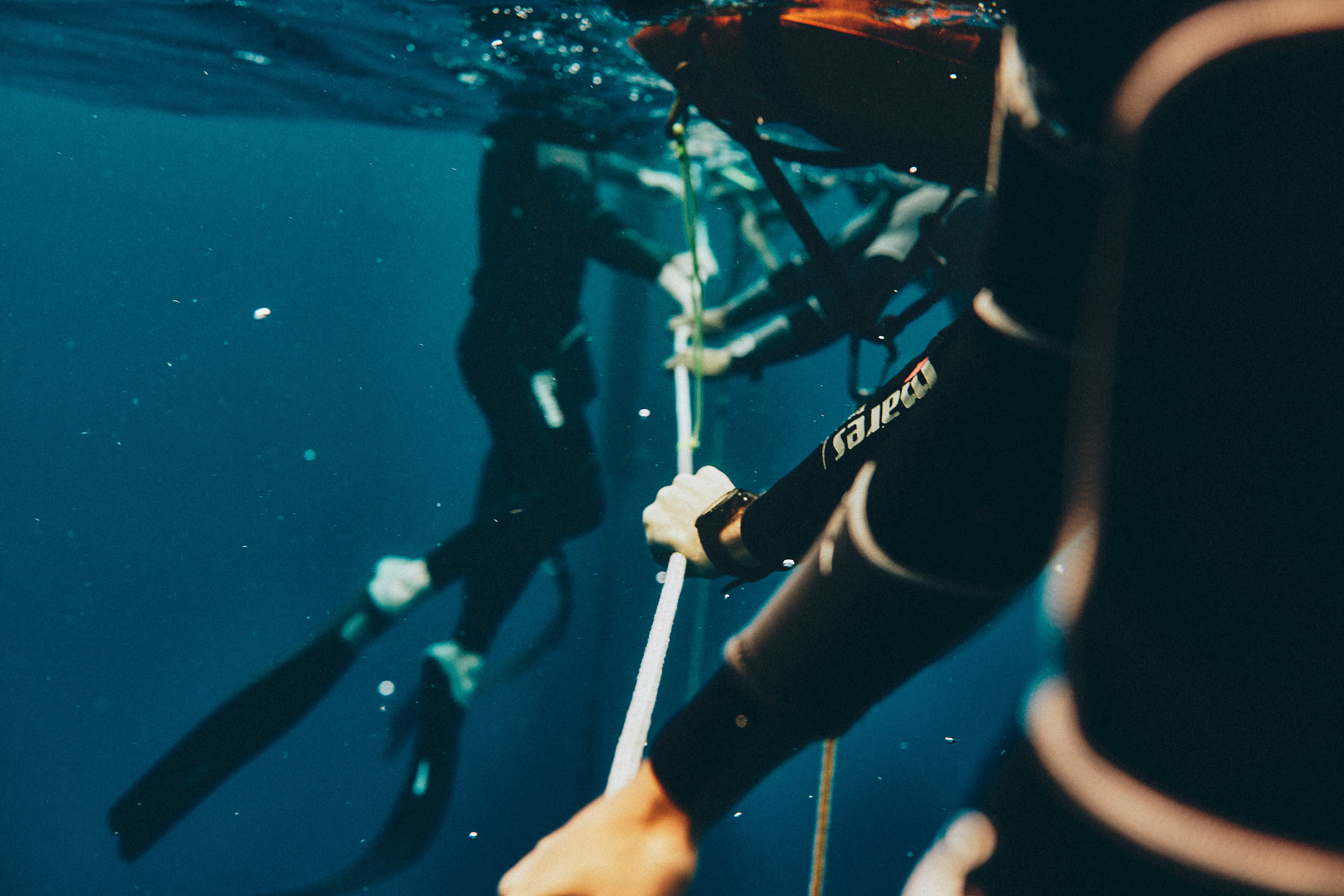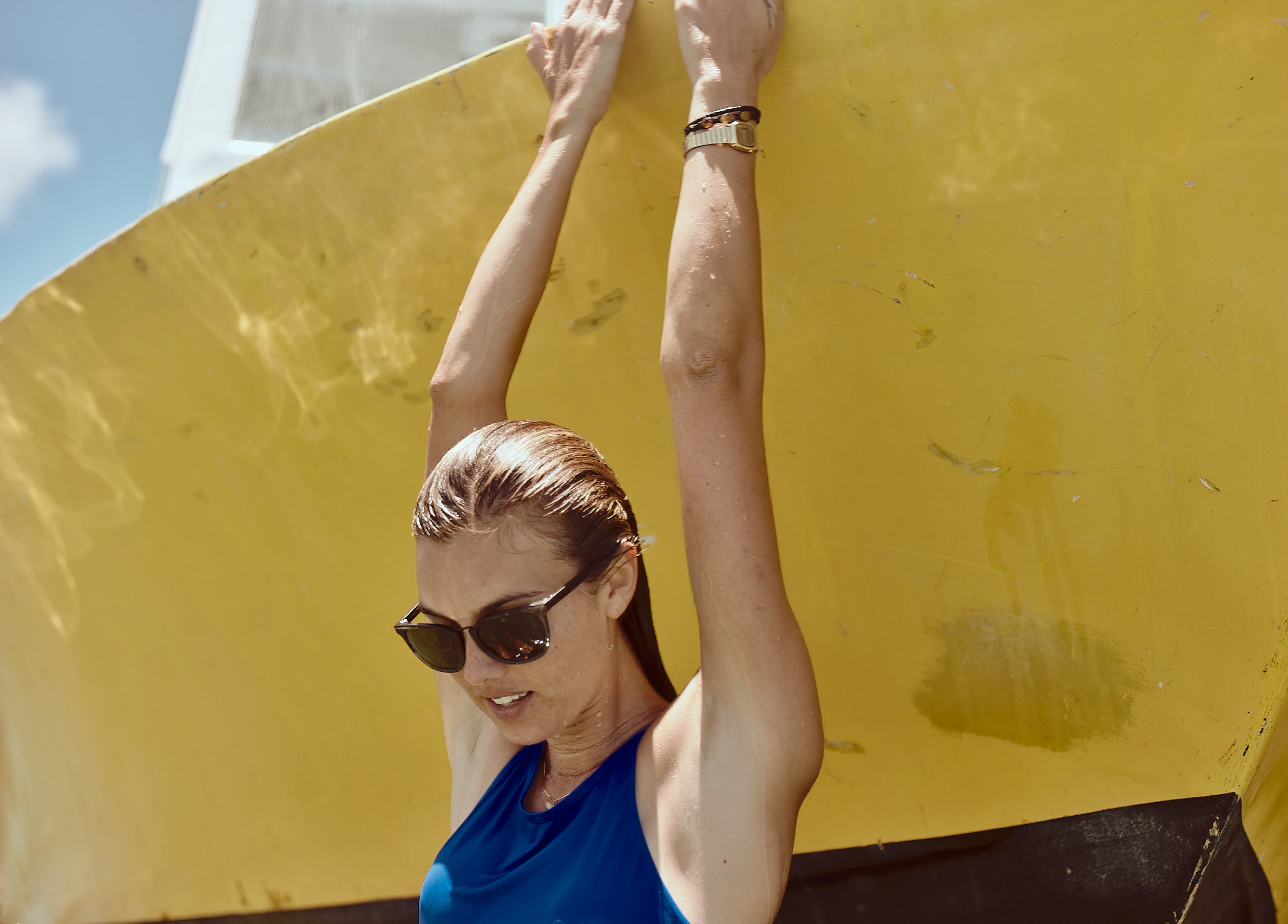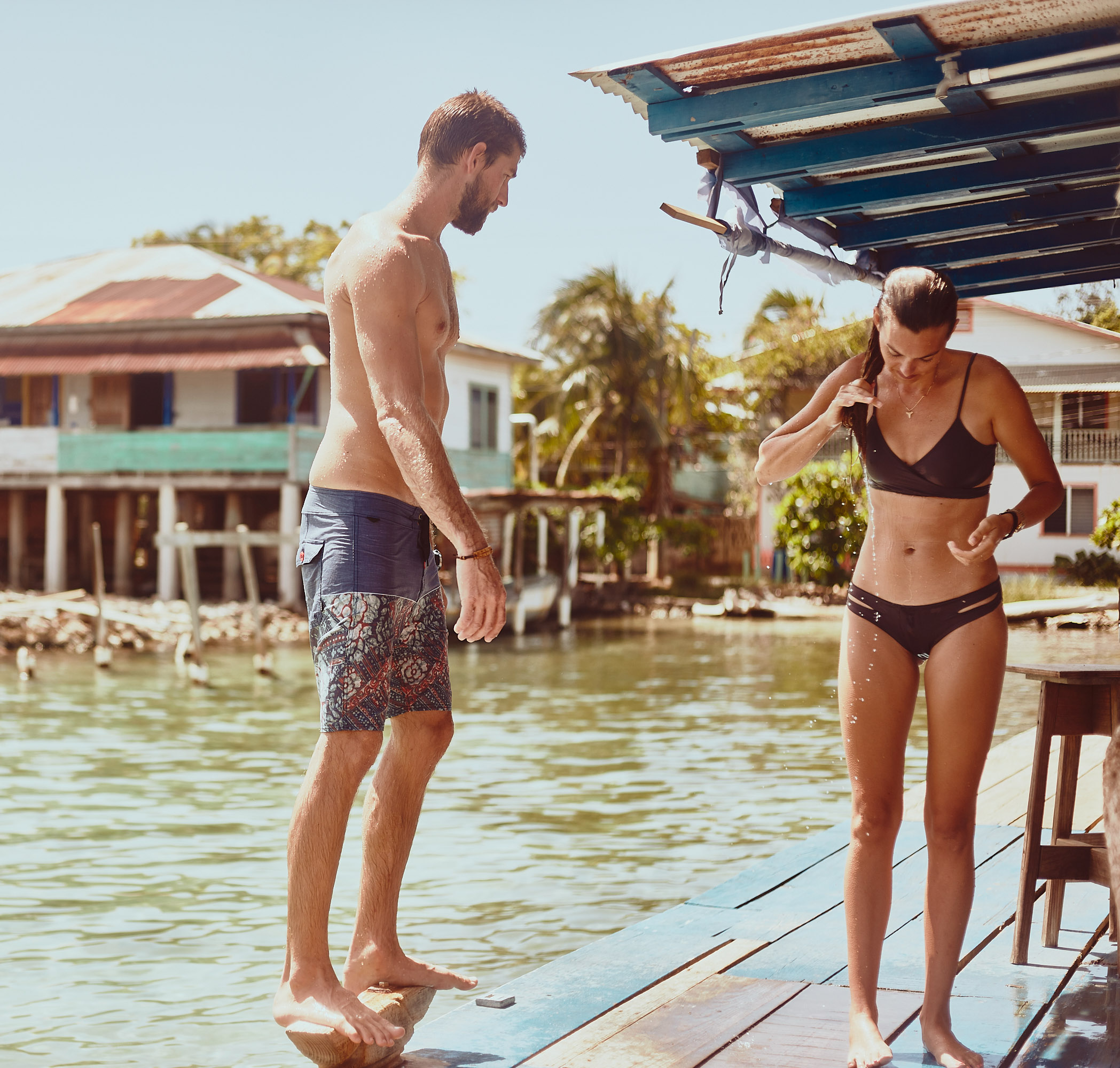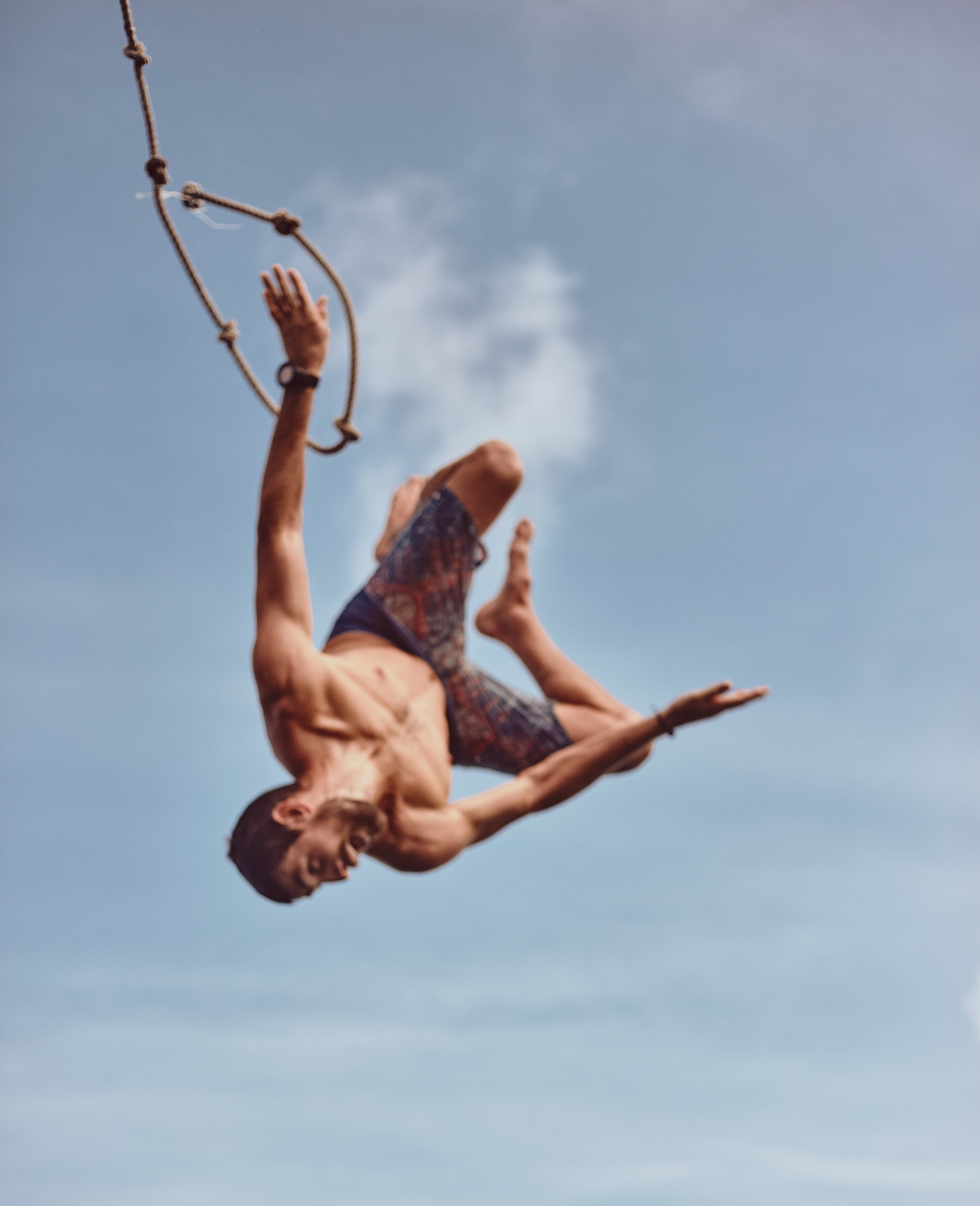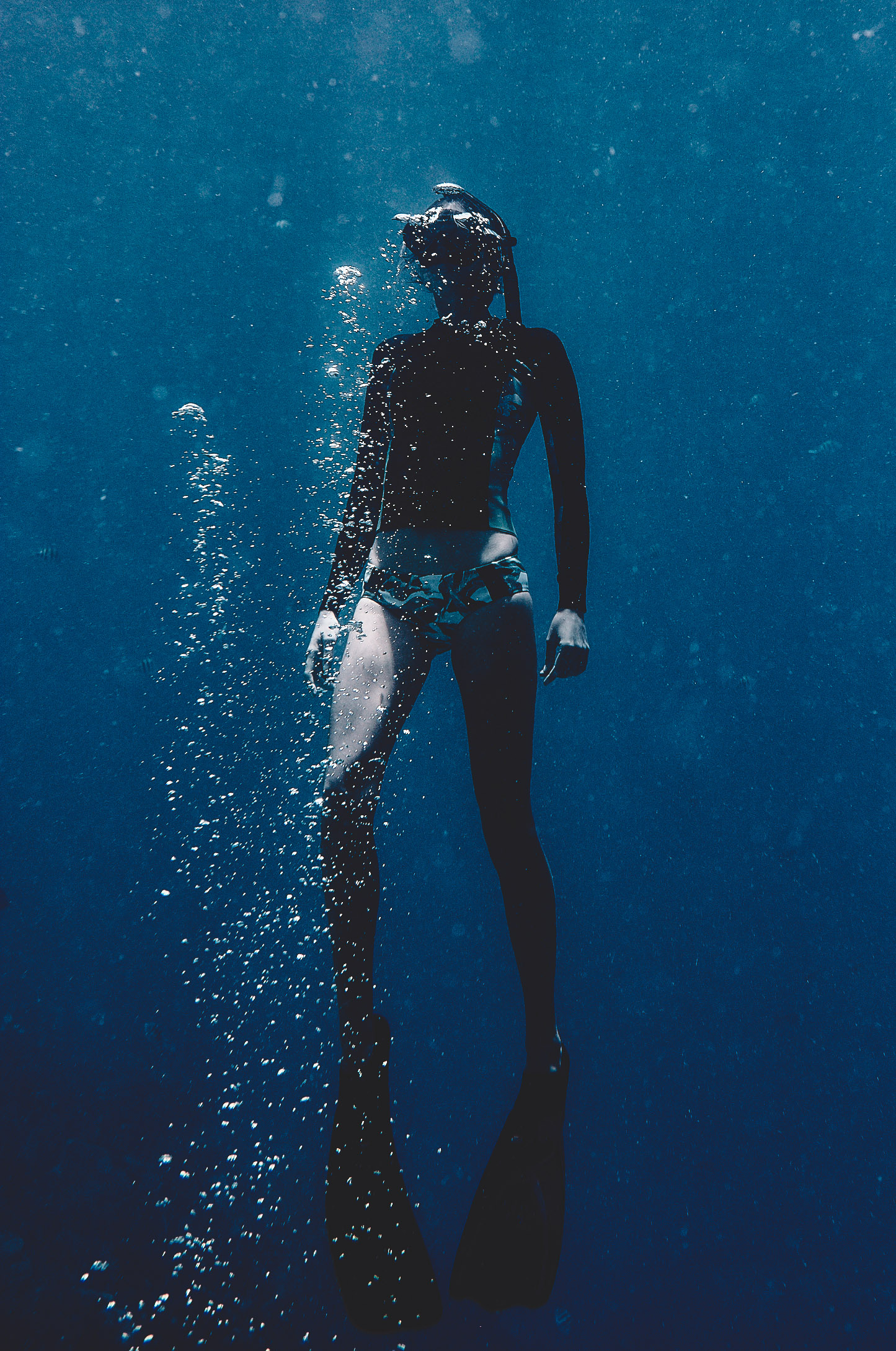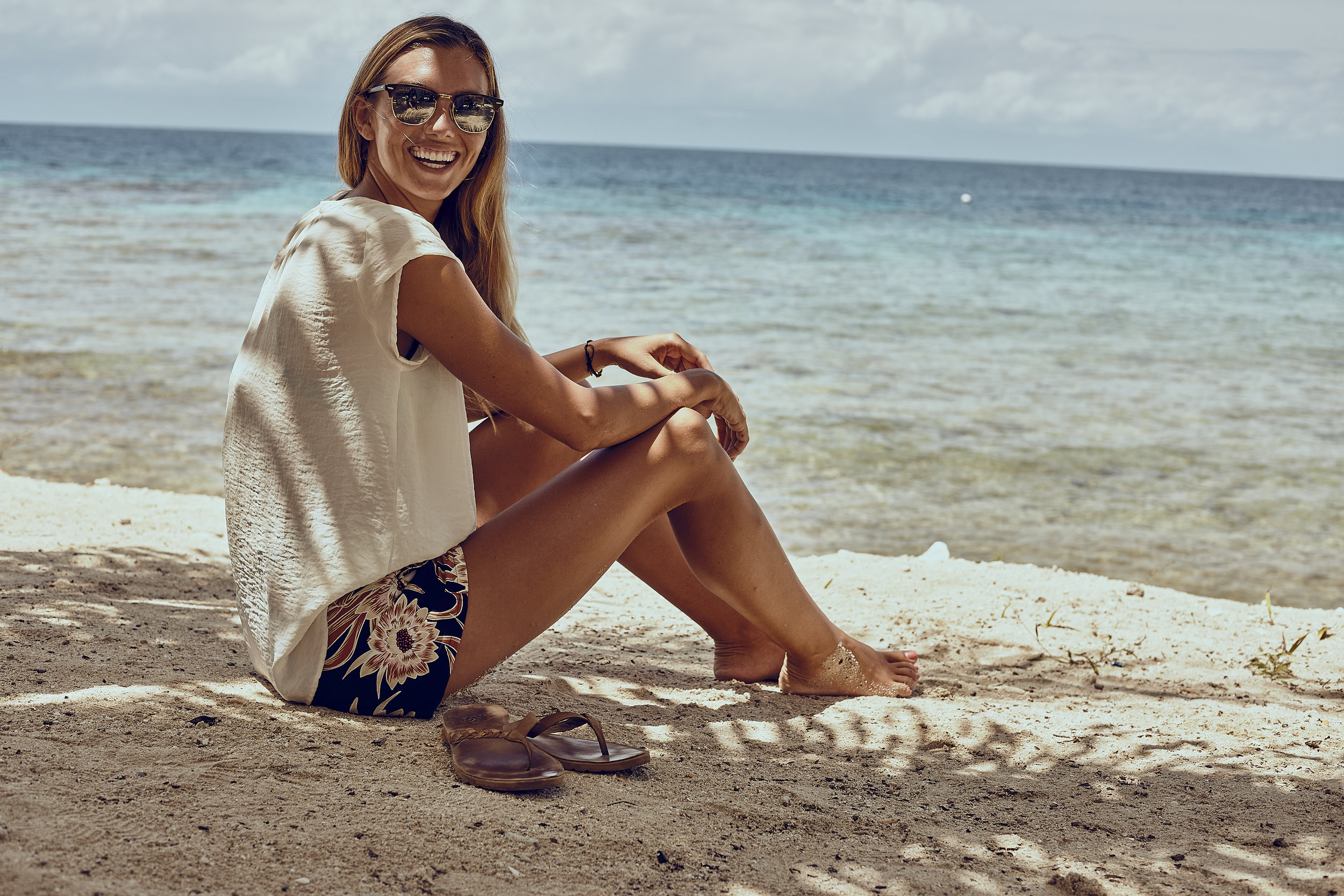Freediving Utila, Honduras
AS FULL TIME VOYAGERS, MOST OF OUR LIFE IS CENTERED AROUND THE OCEAN; WE ARE HIGHLY AWARE OF THE WEATHER, TIDES AND SWELLS. FOR US THE SEA IS A WAY OF LIVING — IT SUSTAINS US AND TAKES US TO NEW PLACES. THE OCEAN IS OUR HOME AND WE STRIVE TO GROW AND LEARN MORE ABOUT HER EVERYDAY.
After exploring Guatemala for a few weeks we journeyed to the island of Utila, Honduras to learn the tips and tricks that would equip us to be better divers. This would be my fifth trip to the island and Josh's third, we've been coming back here for years since I complete my dive masters course back in 2009. Utila is located on the second largest barrier reef in the world and is known for it’s renowned diving. It’s also a backpacker’s paradise and one of the cheapest places in the world to learn how to dive!
The small island has only a few roads and most of the island is impenetrable wilderness, accessible only by the sea. The island also has beautiful beaches, a huge lagoon surrounded by mangroves (perfect for kayaking), and tons of snorkeling. It truly is a magical place to get away, slow down and enjoy the sea.
Our previous trips to the island have always been about scuba diving and visiting friends, and this trip wouldn't be much different. Only this time we planned on taking an Apnea free diving course with Freedive Utila.
The beginner’s course was two and a half days. We spent a few hours in the classroom learning about the different disciplines of apnea free diving, breathing techniques and the dangers of the sport. Our first day in the water we would be practicing our breathe ups and diving to a depth of 12 meters/40ft. We were amazed at how relaxed we were! The breathing techniques we were taught were like a meditation, our bodies and minds were completely at rest and we were able to dive to 40ft relaxed and comfortable. We were even able practice our breath holds at depth.
The second day we learned a new breathing technique that would help us dive deeper. That day we reached a depth of 21 meters or 70ft. We dove the same shipwreck that we had scuba dove years earlier with heavy tanks and cumbersome gear, only this time we were free diving and waving to the scuba divers.
Being relaxed is key. Slowing down your heart beat is so important, and for deep dives a breathe up can take up to five minutes. Don't breathe quickly trying to hyperventilate, since that increases your chance of a shallow water blackout. Think of your breathe up as a meditation, recognize tension in your body and try to release it, as tense muscles use more oxygen than relaxed muscles do. Keeping your body and mind relaxed and calm will help you achieve longer and deeper dives. Long deep breaths starting from your belly and into your chest will help fill up more of your lungs and give you more air for your dive.
We learned lots of specifics in the course, many pertaining to safety. If you are interested in pursuing freediving and want to be able to dive deeper and longer, we highly recommend taking a course with a professional instructor.
By the end of the advanced course, Josh could hold his breath for over 5 minutes and dive comfortably to 100ft!
Learning how to relax in the ocean is a vital tool for anyone who surfs, dives, or enjoys swimming in the ocean. The ocean is so humbling; after growing up and spending our lives on the ocean, there is so much more we can learn from it. We have more respect for it each and every day.













